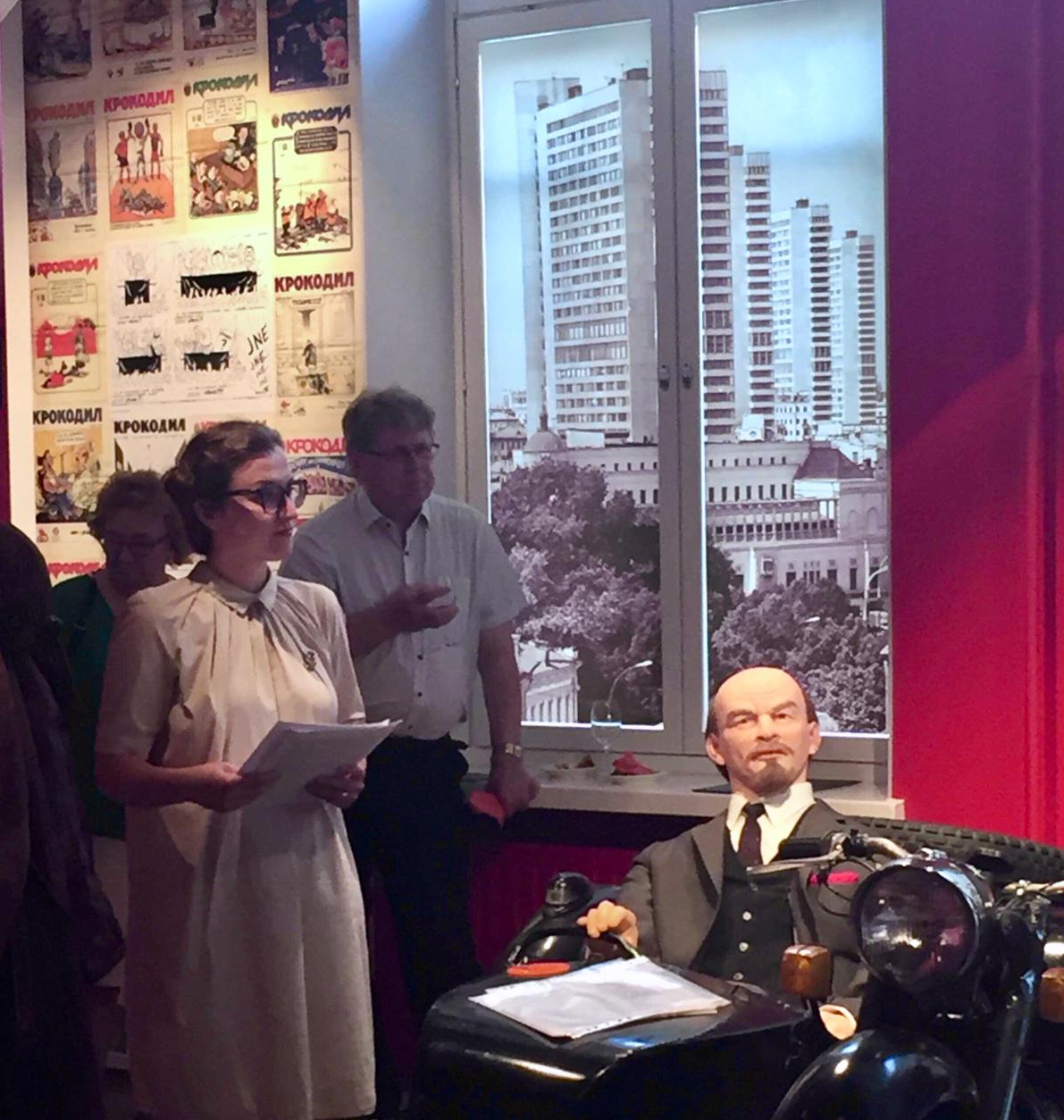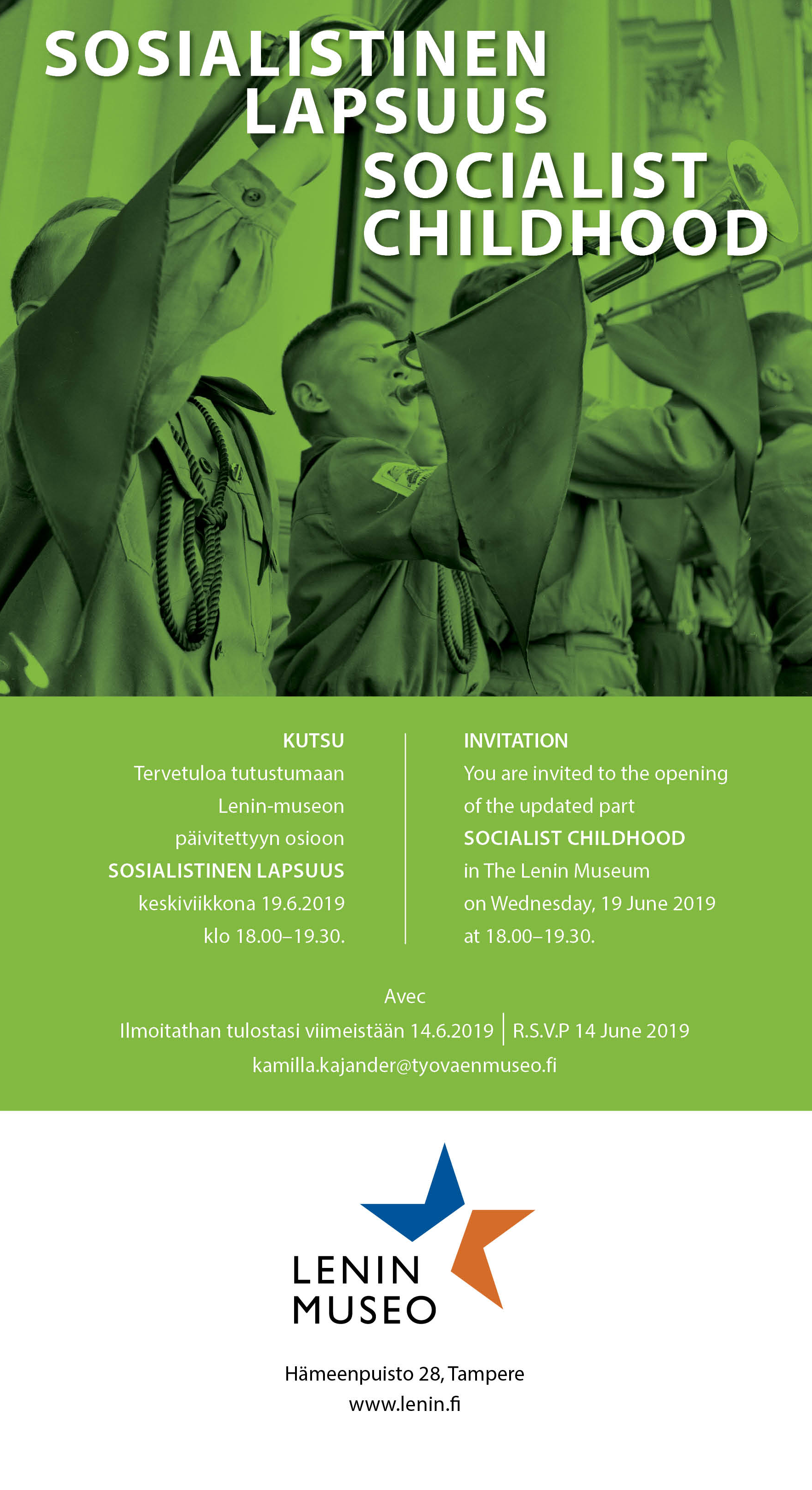This year marks the 30th anniversary of the fall of the Berlin Wall. The Cold War ended two years later in the collapse of the Soviet Union in 1991. Although from this perspective, socialist societies have been gone for a while, there are people living among us – including here in Finland – whose important years of life have been spent in socialist societies in the Soviet Union, Southeast Asia, Latin America, China, Central and Eastern Europe. Many Finnish people have also lived some sort of a socialist childhood, as the Finnish author Laura Honkasalo described in her book “Your children are not yours”.
The socialist childhood as an individual, lived experience has not been the subject of academic research. This is because socialist societies have been traditionally examined in a top-down manner and through great narratives – and childhood was approached as an extension and facilitator of the state’s ideological project. Thus, children were understood as passive objects of ideological education and as followers of state regulations. As a result, the everyday life of children, their experience of questioning the values and practices of adults or the education system, for example, have not been explored. Researchers have a long-standing interest in childhood in kindergartens, schools or youth organizations, but we know little about children’s daily life in leisure time.
Research that lacked interest in individual experiences helped to build dichotomies and perceptions that everyday life and childhood in the Eastern Bloc have been one of a kind and different from that in the West, ignoring play, games or hobbies that united children, and family, community and friendships important to all children across contexts. Thus, research helped to strengthen stereotypes and the imaginary of an impenetrable wall between the East and the West, and fostered images of East and West as internally unified and uniform, but drastically different from one another politically and socially.

Our interest in lived childhood in socialist and post-socialist societies arose from personal trouble. We started our research about five years ago by talking about our childhood in our native states of Karelia, Hungary and Latvia. On the one hand, we felt that it was difficult for us to identify with the scholarly descriptions of “us” and our lives. On the other hand, the former socialist countries themselves began to censor the collective memory by allowing only negative or only rosy and nostalgic stories of the past.
We are motivated by the diversity of our experiences and the need to convey it to research and public debate.
This is how this study was born, asking the question of What was socialist childhood and how did the children themselves feel and act in their everyday lives across socialist countries? As no direct answers to these questions are available, we turned to childhood memories produced and analyzed by adult researchers. Our research seeks to diversify knowledge about socialism and the time after it and give subjects the opportunity to describe their lived childhoods in their own voice and in their own words.
Our projects took part in the Lenin Museum’s Socialist Childhood Exhibition by producing short videos on which researchers born in socialist societies tell short stories from their childhood. These people are the researchers who wrote for our book from all over the socialist world; they also represent different generations. Stories recorded on the videos are the ones they themselves chose to share.
What is the significance of the story and its representation? Answers to this question are certainly as many as the respondents, because hearing and listening bear multiple personal and collective dimensions. From the point of view of the renewal of research, the stories of childhood fill the gap in knowledge on lived childhood and remind us, for example, that there were many levels, backgrounds, worldviews, and thus interpretations and experiences in socialist societies at that time. But in addition to this, the stories have the power to unite individuals and communities. The most important thing about memories is not only recording them but also sharing them. We have discovered that stories create strong emotional bonds between people when narrators and listeners find similarities in childhood memories. Because we now live in a time of confrontation and new walls, we find it important to use the stories to find or create a common humanity.
Lived stories brought to the museum facilities enliven photos and objects placed in showcases. They tell us that objects have sometimes belonged to real people, whose relationship to these objects and the personal significance of these objects to the people may have been very different from the viewer’s assumption. In addition, the displayed items represent to some extent the official, ideological childhood and its interpretation, and the personal stories on the videos complement or challenge these.
What is the significance of this exhibition today in addition to rewriting or supplementing history? First of all, it calls for thinking about the political essence and role of children in modern societies. We would like to remind that today’s children also live in a politically charged context. We do not think that because children are so young, they are not politically interested or they just accept the values and messages of adults and the surrounding society. Today’s children live both in the time of the ecological crisis and the rise of nationalism and populism, and it is important to understand how children interpret and act in the crossroads of these events, challenges and political trends. I also hope that this exhibition will bond generations. I hope that children who have come to and will come to the exhibition be interested in asking their parents about their childhood and will long for more stories.
On behalf of myself and the research team, I would like to thank the Lenin Museum employees for the opportunity to cooperate on the exhibition. It is the duty of the researchers to ensure that the research is channeled into social debate, which means that we have to work to find new ways to reach out to citizens in other ways than academic texts. We, as researchers, are responsible for this, but we do not succeed in this task without open-minded, interested and patient partners. Thanks to the Lenin Museum for partnership on this path! I will also tell you that our joint effort will not end there. With a project funded by the Kone Foundation, we are working on a traveling exhibition in the near future, which will tour in several cities in Europe and the United States – so it’s great to celebrate the completion of one joint project and continuation of the exciting journey together with you today!
Thank you and “v dobrij put’” (Russian) or a good journey to all of us into the fascinating world of childhood memories!
Nelli Piattoeva, speech at the Lenin museum Socialist childhood exhibition opening
19.6.2019

